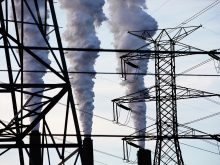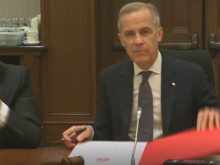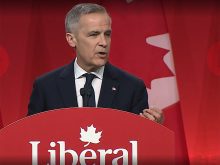Prices were already rising, and industry fears a planned jump in the carbon tax in April will make the situation worse
Crude oil prices have been steadily on the rise since last November as oil producing nations implement production cuts.
This means Canadian farmers already affected by climbing diesel fuel prices will have to dig deeper into their wallets this April.
On April 1, the federal government’s carbon levy on diesel will go up from $0.0805 per litre to $0.1073, a 33 percent increase.
Last December, the federal government promised $15 billion in new spending on climate initiatives until 2030, such as electric vehicle charging infrastructure, home retrofits and tax write-offs for zero-emissions vehicles.
Read Also

Feds propose overhaul of chronic wasting disease control program
Chronic Wasting disease control program getting updated by Canadian Food Inspection Agency with feedback encouraged from producers.
According to data from Natural Resources Canada, the average retail price for diesel on the week of Feb. 11 was $1.159 per litre including taxes, the highest seen since last March. On Feb. 12, average prices ranged from $1.051 per litre in Lloydminster, Alta., to $1.369 per litre in Grand Falls, N.L.
Roger McKnight, chief petroleum analyst for En-Pro International in Oshawa, Ont., said every dollar change in crude oil prices translates to 0.6 cents at the pumps. He added that the carbon tax would make Canadian fuel less competitive on the markets.
“South of the border, they don’t have that sort of thing. It puts us at a disadvantage,” he said.
“Transportation costs (along with those of) goods and services in this country will be significantly higher than they are in the United States…. You’re at a disadvantage compared to an American shipping firm.”
McKnight also said that a possible shutdown of Enbridge Inc.’s Line 5, which carries oil and natural gas from Wisconsin to Sarnia, Ont., would also raise prices even higher, but they may ease when COVID-19 vaccines reach a greater amount of the population. He predicts diesel fuel prices to increase by five to eight cents per litre over the next few months in addition to the carbon tax.
Bill Campbell, president of Keystone Agricultural Producers, said the organization has followed diesel fuel prices closely. Farmers in Manitoba, Saskatchewan and Ontario are exempt from paying the carbon tax for fuel used on farm equipment and vehicles not licensed for public roads, but it still has a downward effect on farmers’ revenues.
“When we see an increase of that carbon tax, businesses will probably increase their costs and what they charge people,” he said, adding that the tax is also paid to transport crops to market.
















